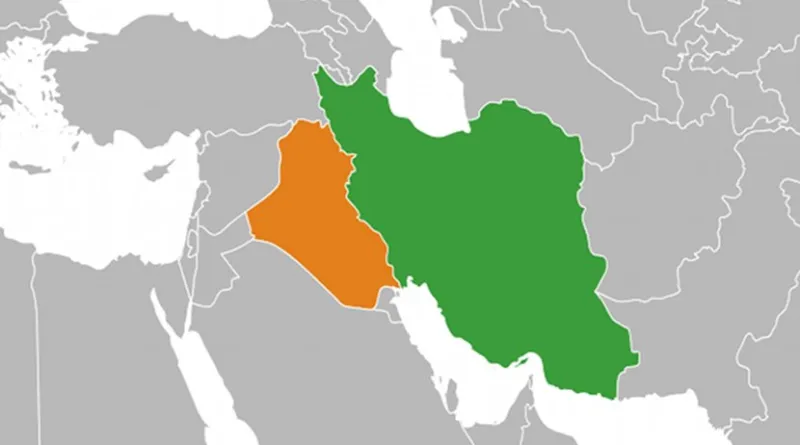
Whenever Iran’s expansionist project in Iraq encounters obstacles, Tehran immediately starts to open old wounds, such as demanding compensation for the 1980-88 Iran-Iraq War and using this as a stick to beat Baghdad with. This Iranian policy has one objective: Blackmailing Iraq into submission and compliance.
Over the years, Iran has also employed various other levers to bring Iraq to its knees, such as withholding the supply of water from its sources and reducing or cutting off the supply of electricity. To justify the latter, Iran has argued that Baghdad has failed to pay its bills.
Amid the domestic crises gripping the Iranian regime and multiple challenges facing its regional expansionist project, especially in Iraq, which is experiencing new developments against Iran’s increasing influence at both the official and popular level, Tehran has once again hinted that it intends to raise the issue of war compensation with Baghdad.
Speaking about this matter last week, Alireza Warnaseri, a member of the Iranian parliament’s Energy Committee, called on Iraq to pay $110 billion in compensation to Tehran for the damage caused during the eight-year war between the two countries. The Iranian lawmaker also went even further, calling on Baghdad to hand over some of its oil wells to Iran.
This is not the first time that Tehran has used the war with Iraq as a lever against Baghdad to ensure its submission and compliance. The last time it did so was in 2018, when former President Hassan Rouhani’s Vice President for Women and Family Affairs Masoumeh Ebtekar called on Iraq to pay compensation for the environmental damage caused by the war. What is truly astounding is that there are even some Iraqi officials, apparently more loyal to Iran than to their own nation, who have previously endorsed such calls. They have insisted that this controversial demand is a “fait accompli.” These include Jalal Al-Din Al-Saghir, who called on his country’s government to pay $1.1 trillion in compensation to Iran.
This latest attempt by Tehran to revive its compensation demand is clearly a response to growing tensions with Iraq over water rights, the construction of dams, and Iraqi threats to lodge a complaint against Iran with the International Court of Justice in protest against the dams already built by the Iranians on the rivers shared by the two countries. These dams have caused devastating water shortages in Iraq, which is already facing rapidly dwindling water resources because of declining rainfall and accelerated desertification.
There is also growing concern in Tehran about possible imminent changes in Iraq that could negatively impact its influence in the country, especially after the heavy losses suffered by the pro-Iran alliances in last month’s parliamentary election.
The election results indicate a growing awareness among the Iraqi electorate, particularly about the dangerous sectarian role played by Iran in Iraq via supporting armed militias — as well as a growing awareness about the vital need to prioritize Iraq’s own interests before others through rallying around cross-sectarian political forces, prioritizing Iraq’s civilization, and bringing Baghdad back to the Arab sphere.
As a result of this growing awareness, the Sadrist movement won a decisive electoral victory, capturing 73 seats, while the cross-sectarian Sunni alliance, led by the outgoing parliament speaker Mohammed Al-Halbousi, came second with 37 seats. The Tehran-affiliated Shiite alliances, in contrast, witnessed sharp losses, shocking the Iranian leadership and its affiliates in Iraq. The Fatah Alliance led by Hadi Al-Amiri came in fifth place, compared to the second place it won in the 2018 election. Meanwhile, the National Wisdom Movement led by Ammar Al-Hakim and the Victory Alliance led by former Prime Minister Haider Abadi captured only four seats between them. This was in stark contrast to the 2018 parliamentary election, when the National Wisdom Movement captured 20 seats and the Victory Alliance 42.
In light of the aforementioned, Iran — by reviving calls to demand war compensation from Iraq — is seeking to place more obstacles in front of the Sadrist movement and its allies ahead of the formation of a new Iraqi government and impose severe limitations on anyone supporting any plan to reduce or end Tehran’s interventionist role. Also, by placing this compensation pressure on Iraq, Iran wants to thwart any collaboration between the different sectarian forces, resist efforts to limit weapons to the state, obstruct any efforts to dissolve its proxy militias, and thwart the Iraqi people’s desire to transition Iraq to a phase of statehood and shift it back to its natural Arab sphere.
In conclusion, it could be said that Iran — which is fully aware of the documents archived by the UN that condemn Tehran for rejecting the Security Council’s calls to end the war with Iraq in the 1980s — is now calling on Baghdad to pay compensation for a conflict whose primary cause was the hostile policies of the Iranian regime and its threatening behavior toward its neighbors. Now, as then, Iran remains heedless and indifferent to the devastation it has brought on the region’s countries, including the destruction of major capitals and irreplaceable historical monuments, along with the hundreds of thousands killed and millions displaced by its ruinous interventions.
In addition, if Iran wants compensation for its war with Iraq, then how much more might be owed to Baghdad for the incalculable losses it has suffered due to Iran’s devastating interventions in its territories since the fall of Saddam Hussein’s regime in 2003? And who can ever compensate the people of the Middle East for their unimaginable suffering caused by the disasters and crises unleashed by Iran’s catastrophic interferences across the region?
